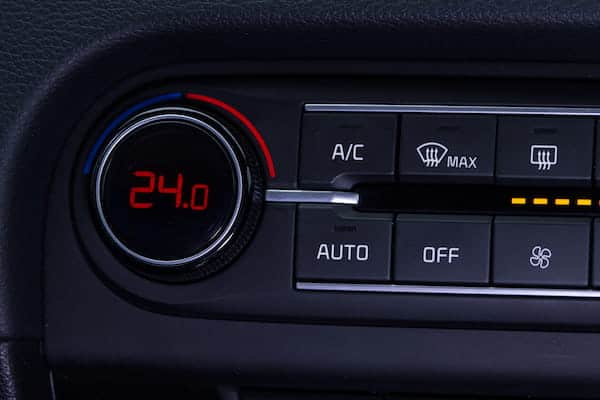Electric cars are marvels of modern engineering, seamlessly combining eco-friendliness with cutting-edge technology. As more people transition from traditional gasoline cars to electric vehicles (EVs), questions arise about the differences in their functionalities. A common query is: how does the heat work in an electric car? This article dives deep into the mechanisms that keep you warm on the road without an internal combustion engine to generate heat.
Table of Contents
Toggle- The Basics of Electric Car Operation
- The Role of Heating in Electric Cars
- How Electric Cars Generate Heat
- Technological Advancements in Heating Electric Cars
- Battery Impact and Heat Management
- User Interfaces and Control
- Environmental Impact of Electric Car Heating
- Future of Heating in Electric Cars
- Maintenance and Care for Heating Systems
- Cost Considerations
- Consumer Tips for Optimal Heating Efficiency
- Comparison with Traditional Vehicles
- Common Myths and Misconceptions
- Conclusion
- FAQ - How Does the Heat Work in an Electric Car
The Basics of Electric Car Operation
At the heart of every electric car lies its battery and electric motor. These components work in tandem to provide power and motion. Unlike gasoline cars, EVs don’t have an engine that produces heat as a byproduct, which means they need a dedicated system to provide warmth inside the cabin.
The Role of Heating in Electric Cars
Heating is pivotal for both comfort and safety in any vehicle. In EVs, the lack of engine-generated heat necessitates alternative methods to keep the interior cozy during cold months and to ensure the windshield remains clear for visibility.
How Electric Cars Generate Heat
Traditional heating methods like resistive heating systems are commonplace in electric cars. These systems convert electric energy directly into heat, much like a toaster or space heater. However, they can be inefficient as they draw power from the battery, reducing the car’s range.
Heat pumps present a more energy-efficient solution. They work on the principle of transferring heat from the outside air into the car’s interior. Even in cold environments, heat pumps can scavenge warmth to maintain a comfortable cabin temperature.
Technological Advancements in Heating Electric Cars
Innovation doesn’t stop with heat pumps. Modern electric cars also utilize waste heat from the powertrain or battery to warm up the interior, significantly improving energy efficiency. Furthermore, smart preconditioning systems allow users to set their desired temperature before even entering the vehicle, using grid power when plugged in to preserve battery life.
Battery Impact and Heat Management

The performance of an electric car’s battery can be sensitive to temperature extremes. Cold weather can reduce battery efficiency, which is why thermal management systems are crucial. These systems maintain optimal battery temperature, ensuring both longevity and consistent performance.
User Interfaces and Control
Electric cars often feature sophisticated user interfaces that give drivers unparalleled control over their in-car environment. From touchscreen panels to smartphone apps, you can easily adjust and schedule heating to suit your preferences.
Environmental Impact of Electric Car Heating
While EVs produce zero emissions during operation, the energy used to heat their interiors must come from somewhere. Comparing the overall environmental footprint of electric heating to that of gasoline cars, EVs still come out ahead, especially when charged with renewable energy sources.
Future of Heating in Electric Cars
As the EV market grows, we can anticipate further innovations in heating technology. The integration of renewable energy sources, like solar panels on vehicles, may one day provide additional power for heating without tapping into the battery.
Maintenance and Care for Heating Systems
Like any vehicle system, the heating components in an electric car require regular maintenance. Adherence to the manufacturer’s guidelines can prevent issues and ensure that your car’s heating system operates effectively throughout its lifespan.
Cost Considerations
When considering the switch to an electric car, prospective buyers often ponder the cost implications. While the upfront costs might be higher than those of traditional cars, electric vehicles offer long-term savings on fuel and maintenance, and many governments provide incentives for their purchase.
Consumer Tips for Optimal Heating Efficiency

To maximize the efficiency of your electric car’s heating system, consider preheating while plugged in, using seat warmers selectively, and employing eco-friendly driving habits to conserve battery life.
Comparison with Traditional Vehicles
Comparing the heating systems of EVs to those of gasoline vehicles reveals differences in efficiency and energy consumption. EVs are typically more energy-efficient and, as technology advances, are closing the gap in convenience and reliability.
Common Myths and Misconceptions
There are numerous myths surrounding the heating capabilities of electric cars. Contrary to some beliefs, electric cars can be just as warm and comfortable as their gasoline counterparts, and with advancements in technology, they continue to improve.
Conclusion
In conclusion, electric car heating systems are sophisticated and multifaceted, designed to provide comfort without compromising the vehicle’s performance. As EV technology advances, we can expect heating systems to become more efficient and environmentally friendly, further enhancing the appeal of electric cars.
FAQ - How Does the Heat Work in an Electric Car
How does cold weather affect electric car battery life?
Cold weather can reduce the efficiency of an electric car’s battery, potentially decreasing range. However, modern EVs are equipped with thermal management systems to mitigate this effect.
Can electric cars be preheated before driving?
Yes, many electric cars have the capability to be preheated while still plugged in, saving battery life and ensuring a warm cabin upon departure.
Are electric car heating systems expensive to repair?
- Repair costs can vary, but electric car heating systems typically have fewer moving parts than traditional vehicles, which can lead to lower maintenance costs over time.
How do electric car heating systems compare to those in gasoline cars?
Electric car heating systems are becoming increasingly efficient and can provide the same level of comfort as those in gasoline cars, often with more precise temperature control.
What innovations are on the horizon for electric car heating?
Future innovations may include the use of solar power, more efficient heat pumps, and improved insulation to enhance the efficiency of electric car heating systems.




